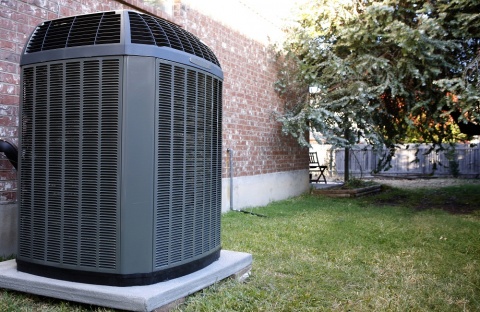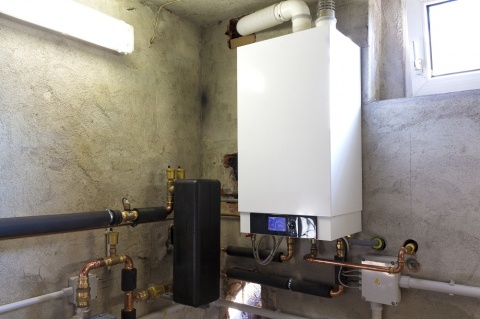Now that that heat of the summer is gone and cooler temperatures have settled in, it’s time to think about your A/C unit, especially if you were unhappy with the performance of your existing unit this past season. When it comes to effectively heating and cooling your home in the East Metro Atlanta and Stockbridge area, generally speaking, you have two basic options. You can choose to have a furnace and a separate A/C unit(s), or you can choose a single heat pump that heats in the winter and cools in the summer. To get started, let’s first understand how the systems work.
The Basics
A furnace uses energy, either natural gas, propane, or electricity, to generate heat and distribute it through your home. A furnace actually creates heat. Conversely, heat pumps and A/C units use electric energy to transfer heat between the outside and the inside. A dedicated A/C unit works one way: it moves hot air from inside your home to the outside. Heat pumps work both ways, transferring heat from the inside to the outside in the summer, and transferring heat from the outside to the inside in the winter. No new heat is created; heat is only moved from one location to another.

With that difference in mind, let’s take a brief look at the pros and cons of each option.
Furnace and A/C
Pros
The most significant pro about using a furnace is that it can heat your home under any conditions. Regardless of the temperature outside, a functioning furnace can generate enough heat to keep you warm and cozy.
If your home is heated via a furnace, you have several options for cooling your home. You can choose a standard A/C system, window A/C units, or any number of other cooling options. You have a lot of flexibility with what you choose to keep you and your family comfortable during the heat of the summer.
Another pro to a furnace/A/C system is the initial cost of the equipment. Furnace and A/C units are less expensive than heat pumps up front.
Cons
Generating heat takes energy. The amount of energy depends on the efficiency of the furnace, the size of your home, and the temperatures outside, but, as your energy bills can attest, generating heat uses a considerable amount of energy. So, while the initial cost of installing a furnace and A/C system may be low, long-term operating costs are high.
Heat Pump
Pros
Heat pumps are very energy efficient, which is good for your pocket book and for the environment. It takes much less energy to move heat than it does to create heat. Georgia Power estimates that heat pumps can save the average household nearly $300 a year in energy costs. Those savings are significant enough to make a real difference over a lifetime.

Cons
First, heat pumps are more expensive up front than other options. However, those costs are quickly reclaimed by energy savings.
The most significant drawback of heat pumps is that, unlike furnaces, they can struggle to provide sufficient heat in sustained, extremely cold weather. When temperatures drop to freezing and below, heat pumps cannot find enough heat outside to transfer inside. For this reason, many heat pump systems are actually hybrids, meaning that they have furnace back-up heat for super cold weather. Mild, temperate climates like Georgia are perfect for heat pumps.
Omega Heating & Air is anxious to help you find a heating and A/C system that’s right for you and your home. Our team of heating and A/C professionals are experts is all types of systems. We’re here to answer your questions. For everything from air conditioning installation in Stockbridge, to furnace repair, and heat pump questions, call Omega.


